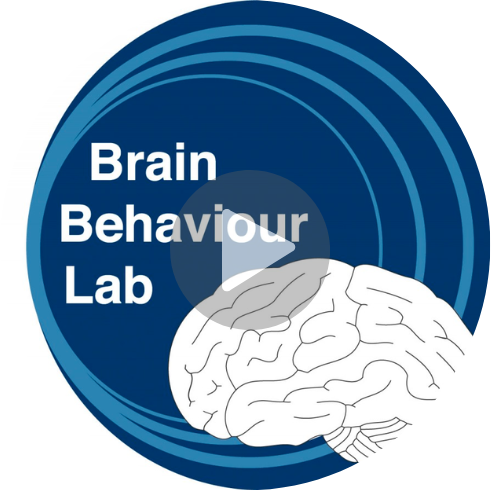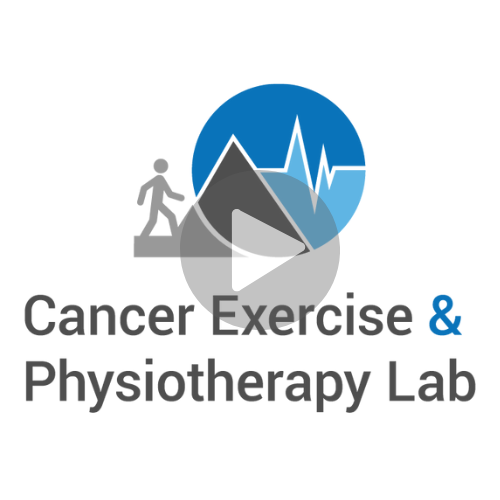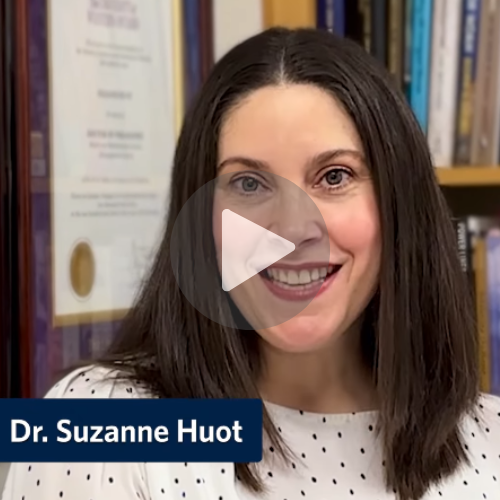| Videos | Lab Name | Faculty | Description |
|---|---|---|---|
| MATTERS Lab | Dr. Bill Miller | The MATTERS (Mobility Assistive Technology Evidence of Rehabilitation Science) Lab researches the measurement, determination, and epidemiology of mobility disability and participation of older adults to improve mobility, social participation and quality of life. Many of their interventions emphasize increasing mobility self-efficacy which mediates social participation. | |
 | Brain Behaviour Lab | Dr. Lara Boyd | The Brain Behaviour Lab conducts research integrating two fields of study: neurobiology of motor learning, and neural science of stroke recovery. The Lab's research examines how the human brain recovers from various types of injury and illness through a combination of motor testing, cognitive testing, and neural imaging. |
 | Pulmonary Rehabilitation Lab | Dr. Pat Camp | The Pulmonary Rehabilitation Research Lab focuses on Indigenous lung health and respiratory-related health services delivery research, including projects focused on telehealth, pulmonary rehabilitation, and improved respiratory care services. |
 | Cancer Exercise & Physiotherapy Lab | Dr. Kristen Campbell | The Cancer Exercise & Physiotherapy Lab researches the roles of physical therapy and exercise on improving physical function and quality of life for cancer survivors, using research methods spanning from efficacy studies to knowledge translation |
| Neurorehabilitation Lab | Dr. Janice Eng | The Neurorehabilitation Research Program develops rehabilitation interventions to improve the functioning and health of individuals with neurological conditions, using research studies ranging from exploratory mechanistic studies, to clinical trials and knowledge translation. | |
| Cardiopulmonary Exercise Physiology Lab | Dr. Jordan Guenette | The Cardiopulmonary Exercise Physiology (CPEP) Lab aims to better understand the physiological factors that limit exercise tolerance across the spectrum of health and chronic lung disease. Novel measurement techniques are used to simultaneously assess the respiratory, cardiovascular, muscular and neuro-physiological responses to exercise. | |
| Developmental Care Program | Dr. Liisa Holsti | The Developmental Care Program centers on finding ways to optimize development in high risk infants and children with special foci on accurately assessing and effectively treating stress in preterm infants in the Neonatal Intensive Care Unit. | |
 | Motion Analysis and Biofeedback Lab | Dr. Michael Hunt | The Motion Analysis and Biofeedback Lab (MABLab) brings together clinicians and researchers to conduct clinically-relevant biomechanics research aiming to optimize physical function in individuals with musculoskeletal and neuromuscular injury and disease. The MABLab is dedicated to further the understanding of the role of muscle and joint biomechanics in the pathogenesis and clinical management of injury and disease. |
 | Arthritis and Knowledge Translation Research Program | Dr. Linda Li | The Arthritis and Knowledge Translation Research Program aims to advance the health of people with arthritis by improving shared decision-making between them and their healthcare providers with the use of wearables and tailored counselling to promote a balance of activity, rest and sleep. To achieve such improvements, a variety of research methods are used including randomized controlled trials, mixed-methods design, and knowledge translation & implementation science. |
| Aging, Mobility, and Cognitive Health Lab Lab | Dr. Teresa Liu-Ambrose | The Aging, Mobility, and Cognitive Health Lab focuses broadly on defining the role of targeted exercise training and physical activity to improve the health and quality of life of older adults. In particular, this research program aims to optimize function among those most vulnerable to both physical and cognitive decline, such as those with cognitive impairment and dementia. | |
 | Mortenson Lab | Dr. Ben Mortenson | The Mortenson Lab is focused on aging, social participation, outcome measurement, and assistive technology, focusing on four main overlapping populations: individuals with SCI, assistive technology users, residents of residential care facilities, and both formal and informal caregivers. |
 | CEDAR Brain Injury Lab | Dr. Julia Schmidt | The CEDAR Brain Injury Lab collaborates with people with brain injuries, community associations, healthcare providers, and policymakers to understand the experience of people with brain injury and develop programs to support quality of life and personally meaningful goals after brain injury. |
| Mobility and Balance Rehabilitation Lab | Dr. Courtney Pollock | Work in the Mobility and Balance Rehabilitation Lab will immerse students in a highly collaborative research environment addressing questions related to fundamental motor control of balance and clinically driven questions addressing balance impairment and mobility. | |
| Scott Lab | Dr. Alex Scott | Dr. Scott's lab at the Centre for Aging Smart examines the biological and biomechanical responses of tendons to mechanical loading and/or injury. | |
| Perception-Action Lab | Dr. Naznin Virji-Babul | The Perception-Action Lab is directed at understanding the neural correlates underlying perceptual-motor and social-emotional processing in infants, children and youth. The lab uses a combination of behavioural measures and brain imaging tools (i.e. DTI and EEG) to probe the brain and investigate the patterns of brain activation as they relate to perceptual-motor and social-emotional development. | |
 | Musculoskeletal Health, Sport, and Exercise Lab | Dr. Jackie Whittaker | The Musculoskeletal Health, Sport, and Exercise Lab is committed to reducing the burden of painful musculoskeletal (muscle, joints, bone) conditions – the biggest source of disability in the world. The lab uses a combination of behavioural measures and brain imaging tools (i.e. DTI and EEG) to probe the brain and investigate the patterns of brain activation as they relate to perceptual-motor and social-emotional development. |
 | Zwicker Lab | Dr. Jill Zwicker | The Zwicker Lab is focused on brain development and motor impairment throughout childhood. Using advanced neuroimaging techniques, the Lab examines how the brain differs in children with and without developmental coordination disorder (DCD) and whether brain structure and function can change with rehabilitation intervention. |
| Knowledge to Action Lab | Dr. Stephanie Glegg | The Knowledge to Action Lab uses implementation science to study the best ways to move knowledge into action to improve health care services, health outcomes, and the health care system. Our research is co-designed by research, clinical, and lived experience experts. We partner in health care, community and policy settings and strive for impact in our work. | |
| Foundry Research | Dr. Skye Barbic | Foundry Research is a diverse group of researchers, trainees, staff, service providers, community members, young people and families/caregivers. Our central office team is based in British Columbia, Canada. We share the goal of making positive change in the lives of young people, families/caregivers and communities by centring their voices in research. We support this goal through the co-creation and implementation of evidence and through knowledge exchange with partners and collaborators. Please refer to foundrbc.ca/research and you will find information about the topics we research, our studies, our team and how to connect with us. | |
| Sakakibara Lab | Dr. Brodie Sakakibara | The Sakakibara Lab is located at the Centre for Chronic Disease Prevention and Management, UBC-Okanagan. The Lab has a large focus on intervention development, healthcare measurement, and clinical trials in the areas of virtual rehabilitation, chronic disease management, and secondary prevention among people with stroke, heart disease, and multimorbidity. | |
 | Elders Create Lab | Dr. Julia Henderson | The Elders CREATE Lab is based in UBC Hospital, and stands for Co-creatvity, Research, Education, Advocacy, Technology and Embodiment. Dr. Henderson's research centres on redressing ageism through occupation. She investigates how occupations can be used to counter ageism, foster a sense of community (especially across generations), and positively (re)shape notions of aging, old age, and practices of care, and be used as forms of activism. |
 | Dr. Suzanne Huot | Dr. Suzanne Huot | Dr. Huot's research explores humans in daily occupation and activities, that is, occupations beyond paid employments and all activities that occupy an individual’s time. Using approaches informed by occupational science, qualitative methodologies, and critical social theory, her research focuses on the occupational implications of international migration to Canada and the experiences of immigrants, refugees, and asylum seekers. |
For more about our RHSC faculty, visit our supervisors page.